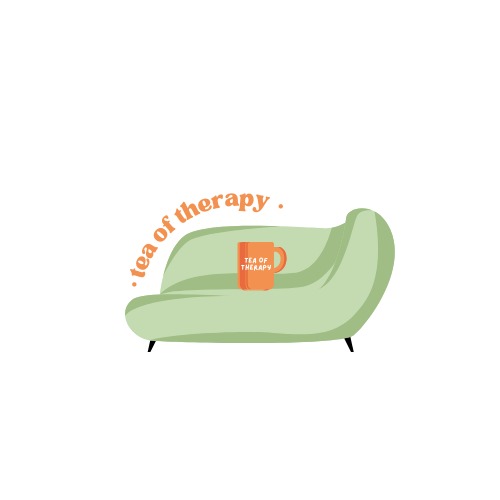Promoting Positive Body Image and Self-Esteem in Children.
- Tea Therapy

- Jun 26, 2024
- 3 min read
In today's society, children are bombarded with images and messages that can negatively impact their body image and self-esteem. From unrealistic beauty standards in the media to peer pressure and social media influence, children are constantly exposed to messages that can lead to feelings of inadequacy and low self-worth. As parents, it's essential to promote positive body image and self-esteem in children to help them develop a healthy relationship with their bodies and cultivate confidence and resilience. In this blog, we'll explore the importance of promoting positive body image and self-esteem in children, discuss the factors that influence body image, and provide practical tips for parents to support their child's self-esteem.
Understanding Body Image and Self-Esteem:
Body image refers to how individuals perceive, think, and feel about their bodies, including their appearance, size, shape, and weight. Self-esteem, on the other hand, refers to an individual's overall sense of self-worth and value. Positive body image and self-esteem are essential for children's mental and emotional well-being, influencing their confidence, social relationships, academic performance, and overall quality of life.

Factors That Influence Body Image:
Several factors can influence children's body image and self-esteem, including:
1. Media Influence: Children are exposed to idealised images of beauty and perfection in the media, including magazines, television, movies, and social media platforms. These unrealistic portrayals can contribute to feelings of inadequacy and dissatisfaction with one's own appearance.
2. Peer Pressure: Children may experience pressure from peers to conform to certain beauty standards or social norms. Bullying, teasing, and negative comments from peers can significantly impact children's body image and self-esteem.
3. Family Dynamics: Family attitudes and behaviours regarding body image, weight, and appearance can influence children's perceptions of themselves. Parents who prioritize appearance or engage in dieting behaviors may unintentionally pass on negative messages about body image to their children.
4. Cultural and Societal Influences: Cultural and societal norms regarding beauty, weight, and appearance can also impact children's body image and self-esteem. Different cultures may have varying ideals of beauty that can influence children's perceptions of themselves and others.
Practical Tips for Promoting Positive Body Image and Self-Esteem in Children:
1. Encourage Positive Self-Talk: Teach your child to practice positive self-talk by focusing on their strengths, abilities, and accomplishments. Encourage them to challenge negative thoughts and replace them with affirmations and words of encouragement.
2. Promote Health Over Appearance: Shift the focus away from appearance-based compliments and instead praise your child for their character, personality, and achievements. Emphasise the importance of health and well-being over appearance, and encourage healthy habits such as regular physical activity, nutritious eating, and adequate sleep.
3. Be a Positive Role Model: Model positive body image and self-esteem by embracing your own body and celebrating its strengths and abilities. Avoid negative self-talk or making derogatory comments about your appearance in front of your child. Instead, demonstrate self-acceptance, self-compassion, and confidence in your own skin.
4. Foster Open Communication: Create a supportive and open environment where your child feels comfortable discussing their feelings, concerns, and insecurities. Listen attentively to their thoughts and experiences, and validate their feelings without judgment or criticism.
5. Teach Media Literacy: Help your child develop critical thinking skills by discussing media messages and their potential impact on body image. Encourage them to question unrealistic beauty standards and stereotypes portrayed in the media, and teach them to recognise and reject harmful messages.
6. Encourage Diverse Representation: Expose your child to diverse representations of beauty and body types in books, movies, television shows, and other media. Celebrate diversity and teach your child to appreciate and respect differences in appearance and identity.
7. Foster a Healthy Relationship with Food: Promote a positive and balanced approach to eating by emphasising the importance of nourishing the body with a variety of foods. Avoid labeling foods as "good" or "bad" and instead focus on moderation, balance, and enjoyment.
8. Celebrate Achievements Beyond Appearance: Encourage your child to pursue activities and interests that bring them joy and fulfillment, regardless of appearance or performance. Celebrate their achievements, talents, and personal growth, and remind them that their worth extends far beyond their physical appearance.
Promoting positive body image and self-esteem in children is essential for their mental and emotional well-being, confidence, and resilience. By understanding the factors that influence body image, parents can take proactive steps to support their child's self-esteem and foster a healthy relationship with their body. By encouraging positive self-talk, promoting health over appearance, being positive role models, fostering open communication, teaching media literacy, encouraging diverse representation, fostering a healthy relationship with food, and celebrating achievements beyond appearance, parents can empower their children to embrace their unique qualities, value themselves for who they are, and navigate the challenges of adolescence with confidence and resilience. Together, let's create a world where every child feels valued, accepted, and empowered to be their authentic selves.




Comments